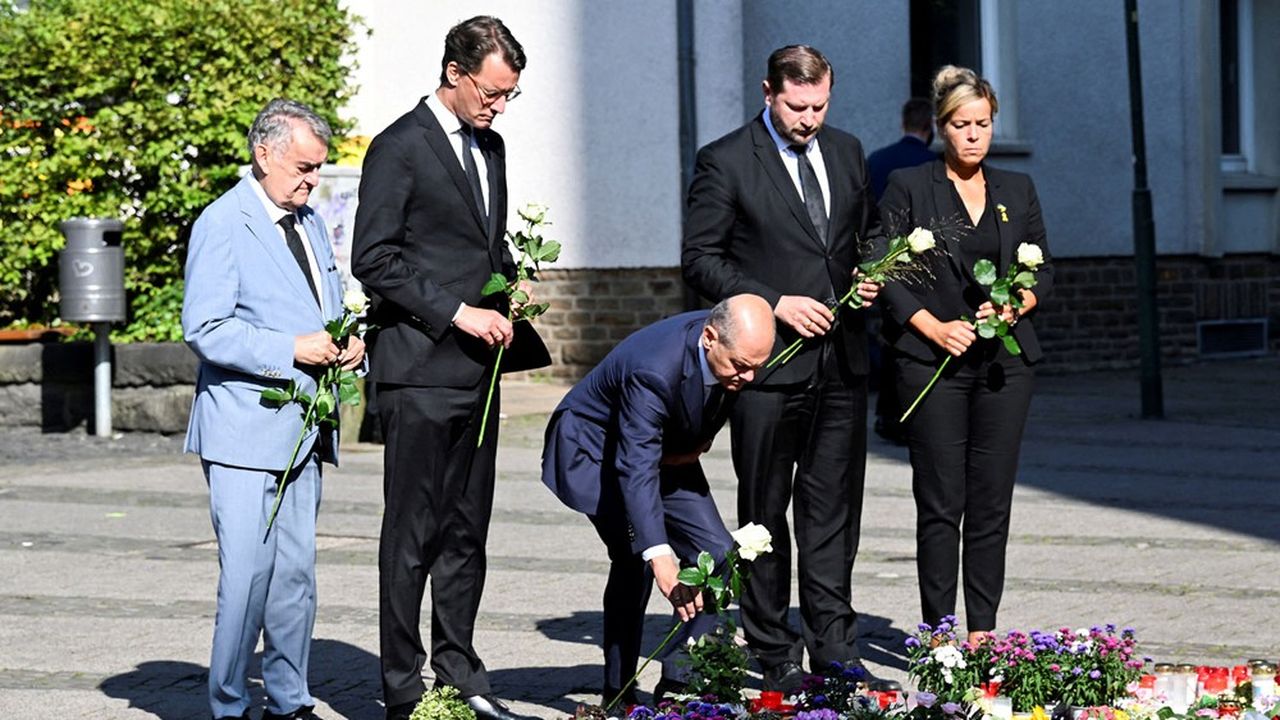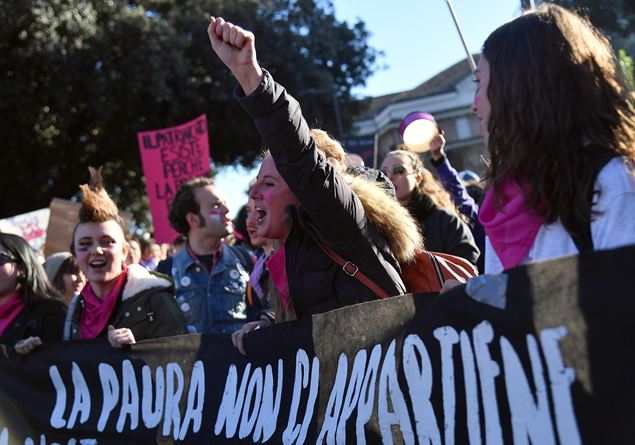
It was with a somber expression and measured words that Chancellor Olaf Scholz addressed the media on Monday, after paying tribute to the victims of the attack in Solingen, North Rhine-Westphalia. “This was terrorism, terrorism against all of us. (…) And this is something we will never accept,” he declared.
The stabbing attack, claimed by the Islamic State, left three dead and eight injured on Friday night. It will push the government to tighten gun laws and put migration policy back at the center of debate, as two key elections are held in eastern states at the end of the week.
“This large-scale attack could be a turning point in Germany, showing that things cannot continue in such an anarchic manner. The authority of the state has suffered greatly. It can no longer guarantee the security of citizens and citizens will not accept this,” says Tilman Mayer, a political scientist at the University of Bonn.
“Angry and furious”
Olaf Scholz, who said he was “angry and furious”, announced a “rapid” tightening of regulations on weapons, particularly knives. At the end of May, the death of a police officer stabbed by an Afghan refugee in Mannheim had already sparked a debate in Germany.
Since then, the social-democrat Minister of the Interior, Nancy Faeser, has wanted to ban blades longer than 6 cm in public spaces. A project supported by the Greens but opposed by the liberals for reasons of freedom. A position that will be increasingly difficult for them to maintain.
Expelling “on a large scale”
Chancellor Olaf Scholz then said he wanted to “do everything” so that “people who cannot and must not stay in Germany are repatriated and expelled.” Issa Al H., a 26-year-old Syrian, confessed to being the perpetrator of the attacks. He had filed an asylum application, which had been refused, and should have been expelled last year. A procedure that failed, because the man was not in his refugee home when the police came to get him, several German media outlets explain. Deficiencies that could weigh heavily on public opinion.
In October, the Social Democratic Chancellor had already announced that he wanted to expel rejected asylum seekers “on a large scale”. This was a far cry from the vision set out in 2017 by the former mayor of Hamburg in his book “Hoffnungsland” (Land of Hope), in which he explained the opportunities that immigration represented for an ageing Germany.
Since that shift, evictions have jumped 30% this year, and more than 60% since 2022. “We will look very closely at how we can increase these numbers further, if necessary through regulations,” Scholz said.
Friedrich Merz, the leader of the conservative opposition, has called for an immediate halt to arrivals from Syria and Afghanistan. A measure that is impossible to implement under the Constitution, replied the secretary of the Social Democratic Party, Kevin Kuhnert.
Questions about intelligence
With elections looming, “the attack gives fuel to the fire of those who believe that immigration to Germany is haphazard and that an excess of humanity prevails instead of objective immigration criteria,” says Tilman Mayer.
Faced with a high risk of attack, Germany is also questioning its very strict intelligence legislation. On Sunday evening, in a prime-time television program, the head of the police union, Jochen Kopelke, deplored the fact that Germany is still dependent on information from foreign services.
Why? “The question is not why we don’t know, but why we don’t have the right to act,” explained the unionist, to loud applause. Enough to give the feeling of a societal shift underway across the Rhine.







